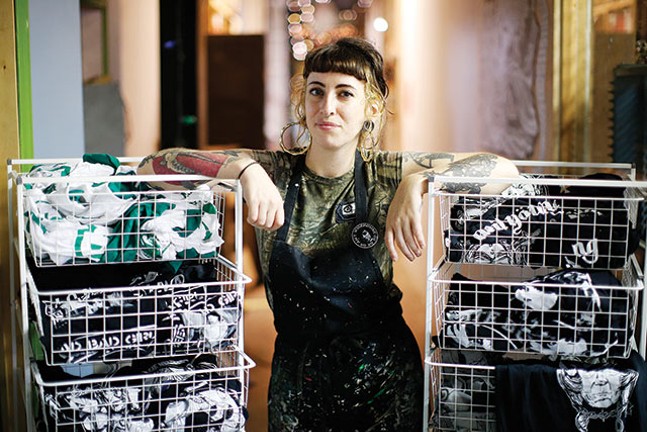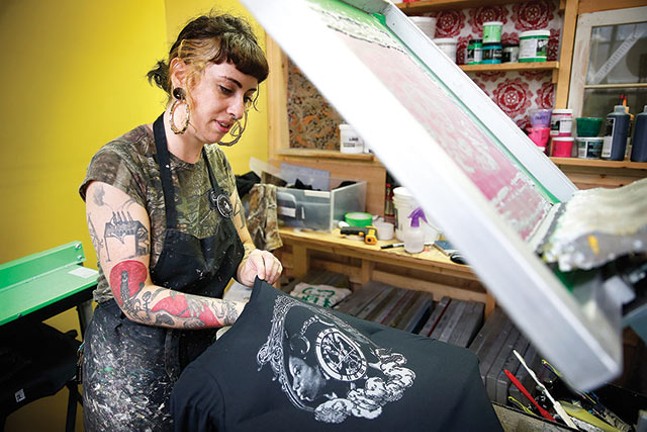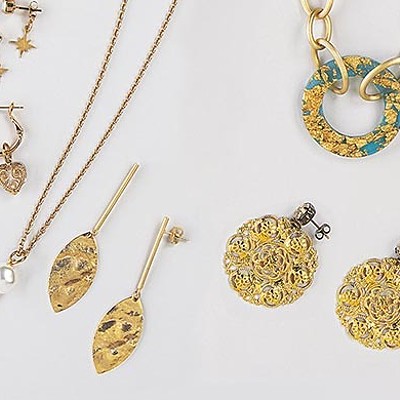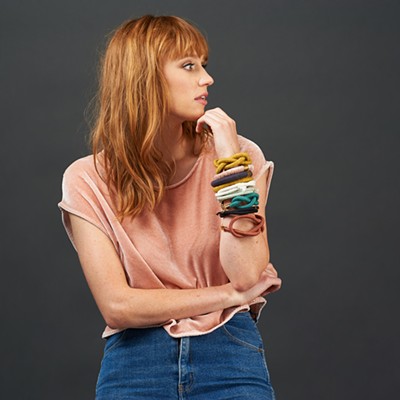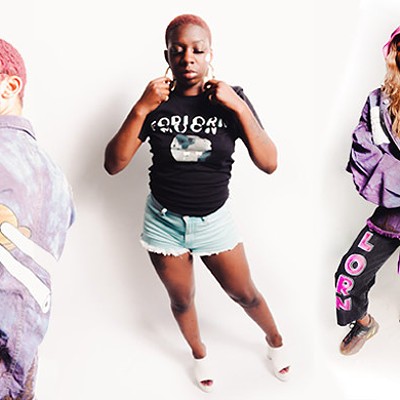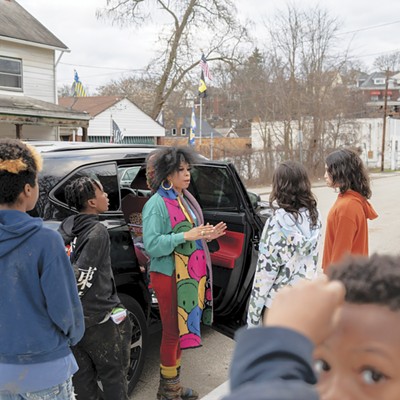Most people know a punk when they see one. Black clothes, dyed hair, studs, carabiners, band shirts. "Not all punks!" one might say, accurately. Artist and printmaker Rose Hermalin grew up in the punk community and it remains central to her life, but she became frustrated by a certain exclusivity to the punk look and which music was deemed acceptable to advertise on a t-shirt.
"I got really frustrated by trying to maintain a personal aesthetic that was in line with my identity," says Hermalin.
Hermalin went to graduate school for food studies at Chatham University and was working on a PhD at the University of Pittsburgh when she realized academia was not the right path. She designed shirts as a hobby and eventually garnered enough customers to establish her one-woman business, Bread & Water Printshop. In October 2017, it became her full-time job.
The shirts (and patches and underwear and stickers) are unique and instantly recognizable. They combine aesthetics of a punk band logo with an artist that is traditionally "not punk." It's not necessary to know the band from which the logo derives because the essence is always in the font, lettering, style, and, of course, color, which is almost always black. The Ronettes and the Ramones. Neil Young and Motorhead. Cardi B and Venom.
"For a while when I was much younger, it didn't feel punk enough to listen to those bands, so also trying to reclaim that for myself and kind of make space for the fact that no one in punk communities exclusively listens to punk — that's impossible and boring," says Hermalin.
Punk can be a contradictory subculture. It's built on anti-establishment values, a community for weirdos who don't fit in with mainstream society but don't want to, either. But in its worst form, punk mirrors the structures of the very society it is trying to break down; a culture dominated by white men with studded vests who stomp around pointing out the people in their communities who don't conform to arbitrary standards on what is punk enough (a woman in a Kate Bush t-shirt, for example).
"I've always felt like punk — I mean subcultures generally, but punk especially — puts a lot of emphasis on visibility and aesthetic as authenticity," says Hermalin.
In a way, Bread & Water shirts uphold the strive for authenticity, affirming it's better if that band you like has a shirt that looks like all the other shirts. But it also broadens and challenges the community's relationship with race and pop culture in a way that is rarely done.
Hermalin has received criticism from people in the punk community for a variety of reasons, including "appropriating” and commercializing the culture. But she says that the shirts that receive the most criticism are those depicting Cardi B, Nicki Minaj, and Missy Elliot. Hermalin saved a particularly vile message from a man who said her shirts promoted a "ghetto ass hood mentality." It's the kind of criticism that is so transparently racist and sexist that the person saying it must do mental hoops for it to make sense.
Also popular from Bread & Water are country music shirts featuring the likes of Dolly Parton, Loretta Lynn, and Patsy Cline, as part of a particular surge of appreciation for that genre in the punk community. "There's a level to it where punk has been engaging more directly with rural culture. You see a lot more camo and people being excited about trucks and biker stuff," says Hermalin.
But the shirts featuring country artists don't draw the same ire as those featuring rappers, pointing to a larger issue concerning perceptions of race and music. Rap is often the genre that garners criticism for vulgarity, violence, and poor treatment of women — traits that certainly exist in rap, just as they exist in every other genre, including country and punk. Hermalin has another critic who took issue with the Cardi B shirt because of transphobic comments the artist had made, but in the same breath praised the Loretta Lynn shirt, seemingly ignoring the singer's open support of President Trump.
"Punk is historically a white boy club and if that's never challenged for you … I think that some people don't understand why it would be challenged, or why there is anything to poke fun at." says Hermalin.
It’s an accomplishment when customers laugh at the shirts or find relief in finding the shirt of their dreams. It’s a send-up of all the ways the punk community can be conflictingly exclusive, but it’s also an ode to the scene, and to the value of maintaining a personal identity. Who says Cher can’t be punk?
Follow staff writer Hannah Lynn on Twitter @hanfranny

